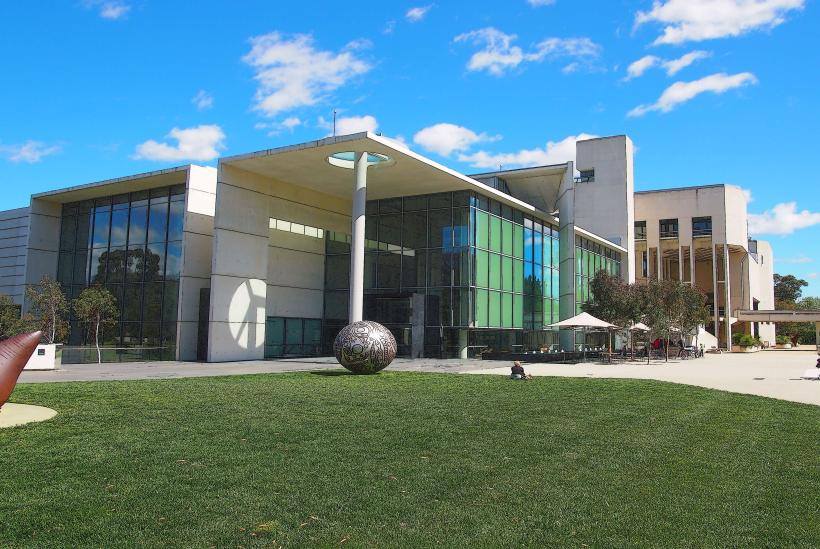Information
Landmark: Australian National UniversityCity: Canberra
Country: Australia
Continent: Australia
Australian National University, Canberra, Australia, Australia
The Australian National University (ANU) is a public research university located in Canberra, Australia. It is situated on a 145-hectare campus in the suburb of Acton.
Visual Characteristics
The campus architecture is a mix of Brutalist and modern styles. Buildings are primarily constructed from concrete, brick, and glass. Notable structures include the distinctive cylindrical Chancel (now the ANU Drill Hall Gallery) and the multi-story Menzies Library. Landscaping features extensive lawns, mature trees, and water features.
Location & Access Logistics
ANU is located approximately 3 kilometers northwest of the Canberra city center. Access is via University Drive, which connects to major arterial roads such as Commonwealth Avenue and Barry Drive. On-campus parking is available in designated paid parking stations and street parking areas. Public transport options include ACTION bus routes 3, 4, 5, 6, 7, 8, 9, 10, 11, 12, 13, 14, 15, 16, 17, 18, 19, 20, 21, 22, 23, 24, 25, 26, 27, 28, 29, 30, 31, 32, 33, 34, 35, 36, 37, 38, 39, 40, 41, 42, 43, 44, 45, 46, 47, 48, 49, 50, 51, 52, 53, 54, 55, 56, 57, 58, 59, 60, 61, 62, 63, 64, 65, 66, 67, 68, 69, 70, 71, 72, 73, 74, 75, 76, 77, 78, 79, 80, 81, 82, 83, 84, 85, 86, 87, 88, 89, 90, 91, 92, 93, 94, 95, 96, 97, 98, 99, 100, 101, 102, 103, 104, 105, 106, 107, 108, 109, 110, 111, 112, 113, 114, 115, 116, 117, 118, 119, 120, 121, 122, 123, 124, 125, 126, 127, 128, 129, 130, 131, 132, 133, 134, 135, 136, 137, 138, 139, 140, 141, 142, 143, 144, 145, 146, 147, 148, 149, 150, 151, 152, 153, 154, 155, 156, 157, 158, 159, 160, 161, 162, 163, 164, 165, 166, 167, 168, 169, 170, 171, 172, 173, 174, 175, 176, 177, 178, 179, 180, 181, 182, 183, 184, 185, 186, 187, 188, 189, 190, 191, 192, 193, 194, 195, 196, 197, 198, 199, 200, 201, 202, 203, 204, 205, 206, 207, 208, 209, 210, 211, 212, 213, 214, 215, 216, 217, 218, 219, 220, 221, 222, 223,




















